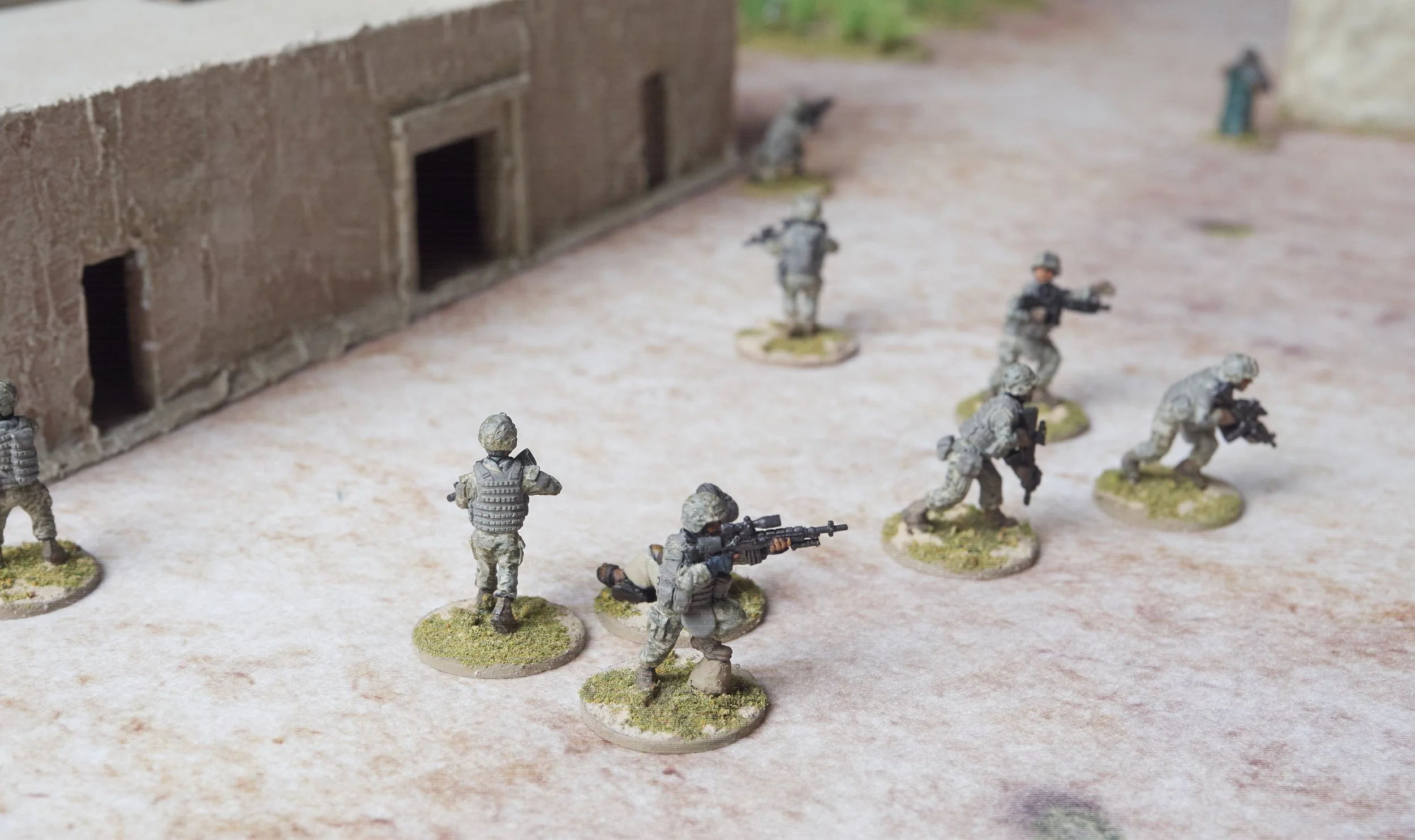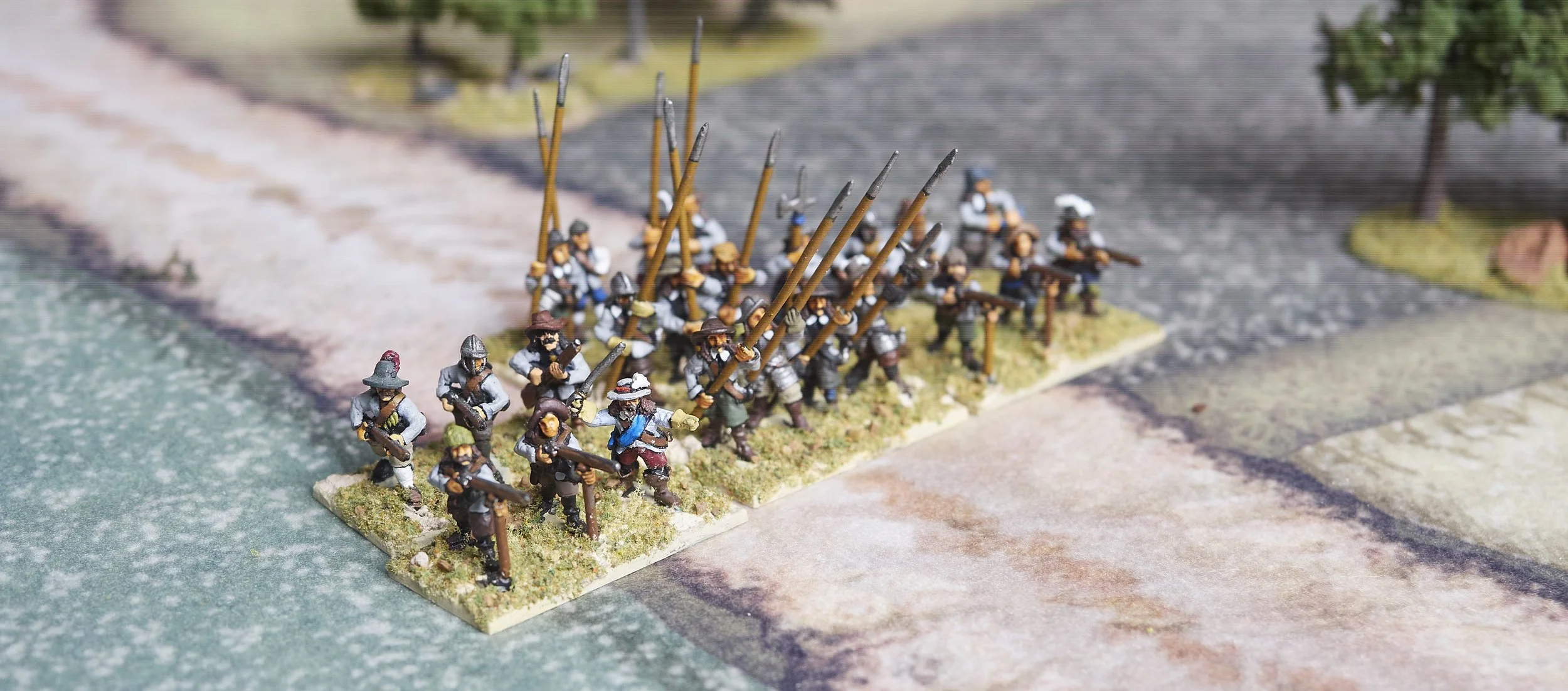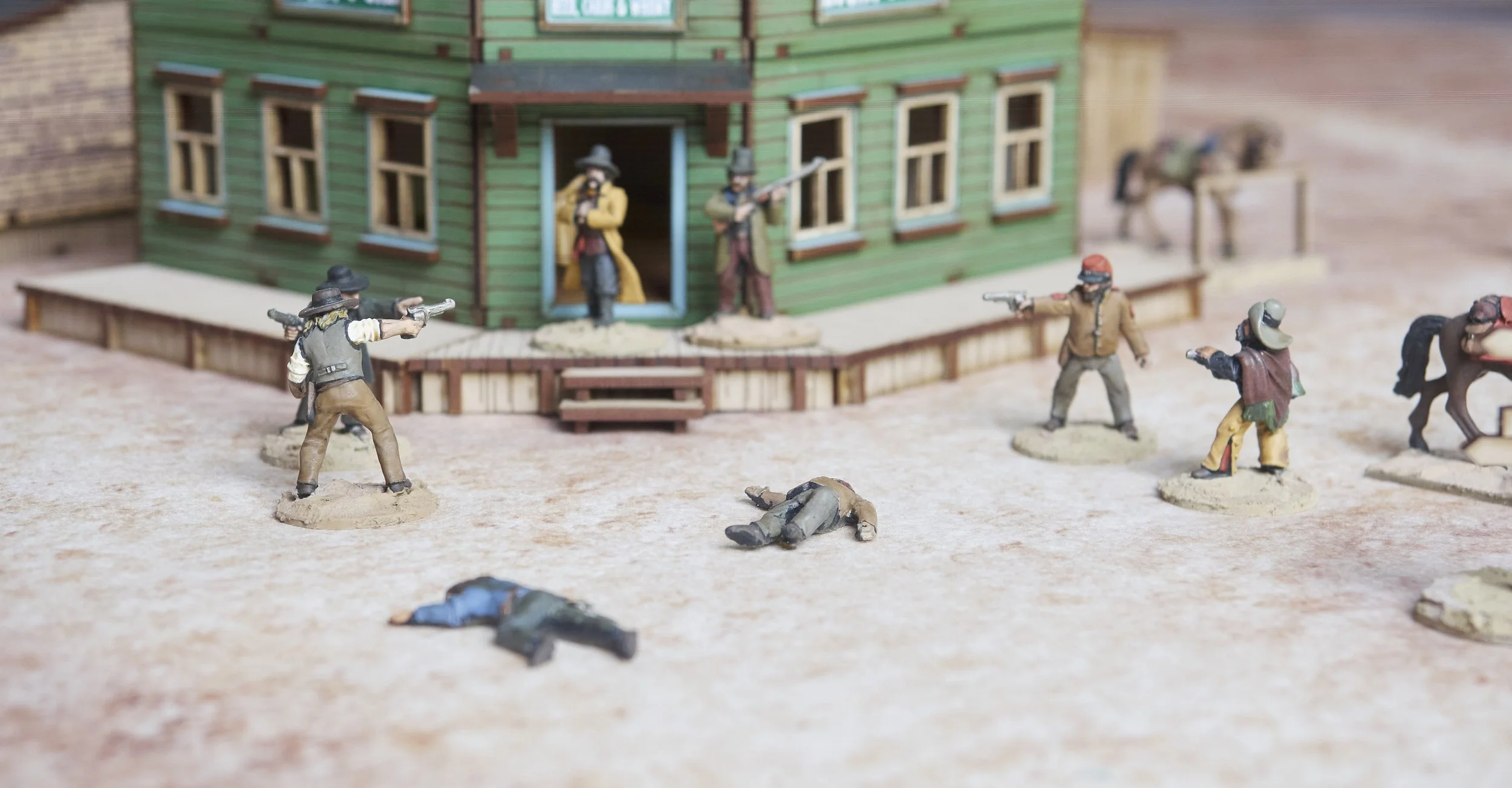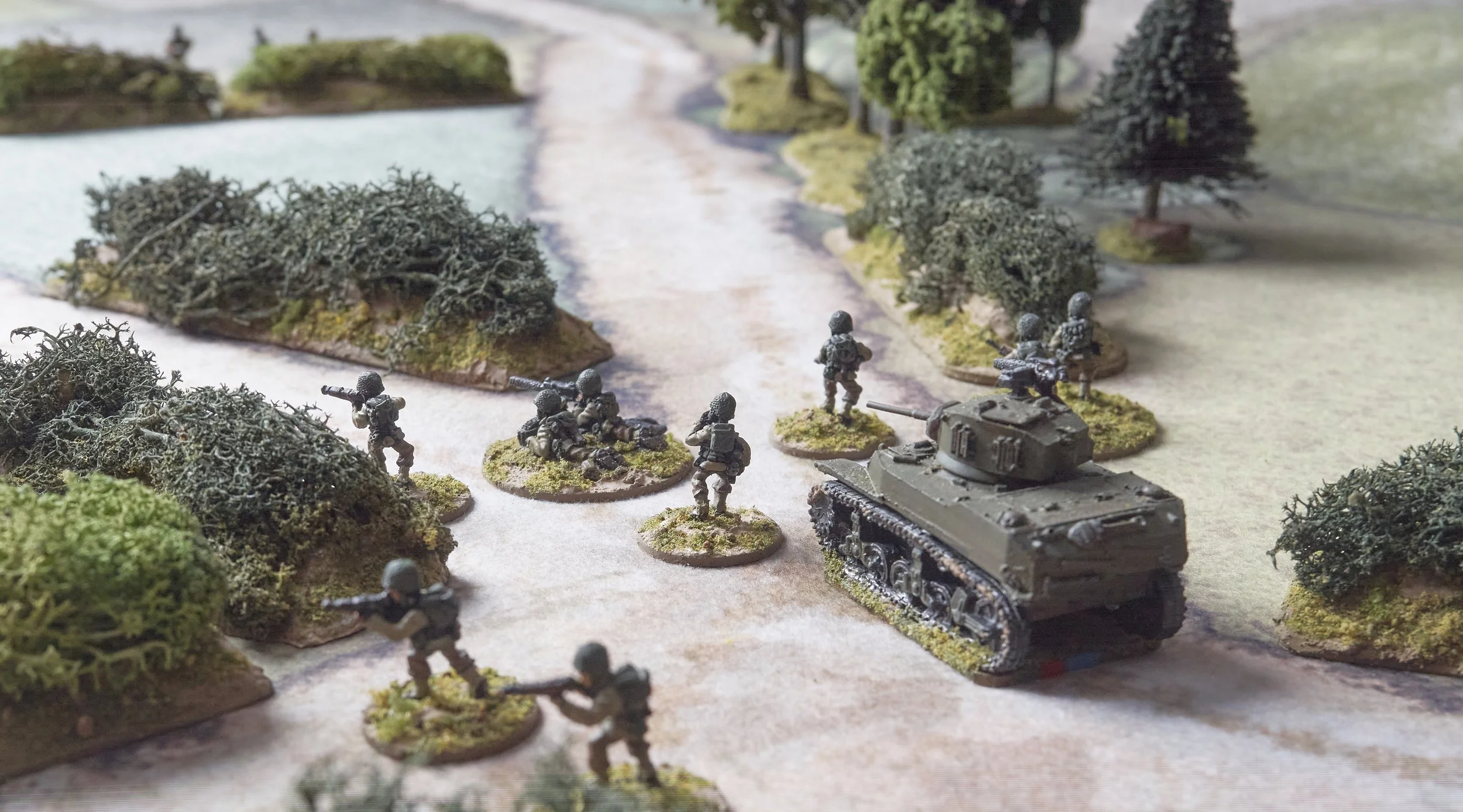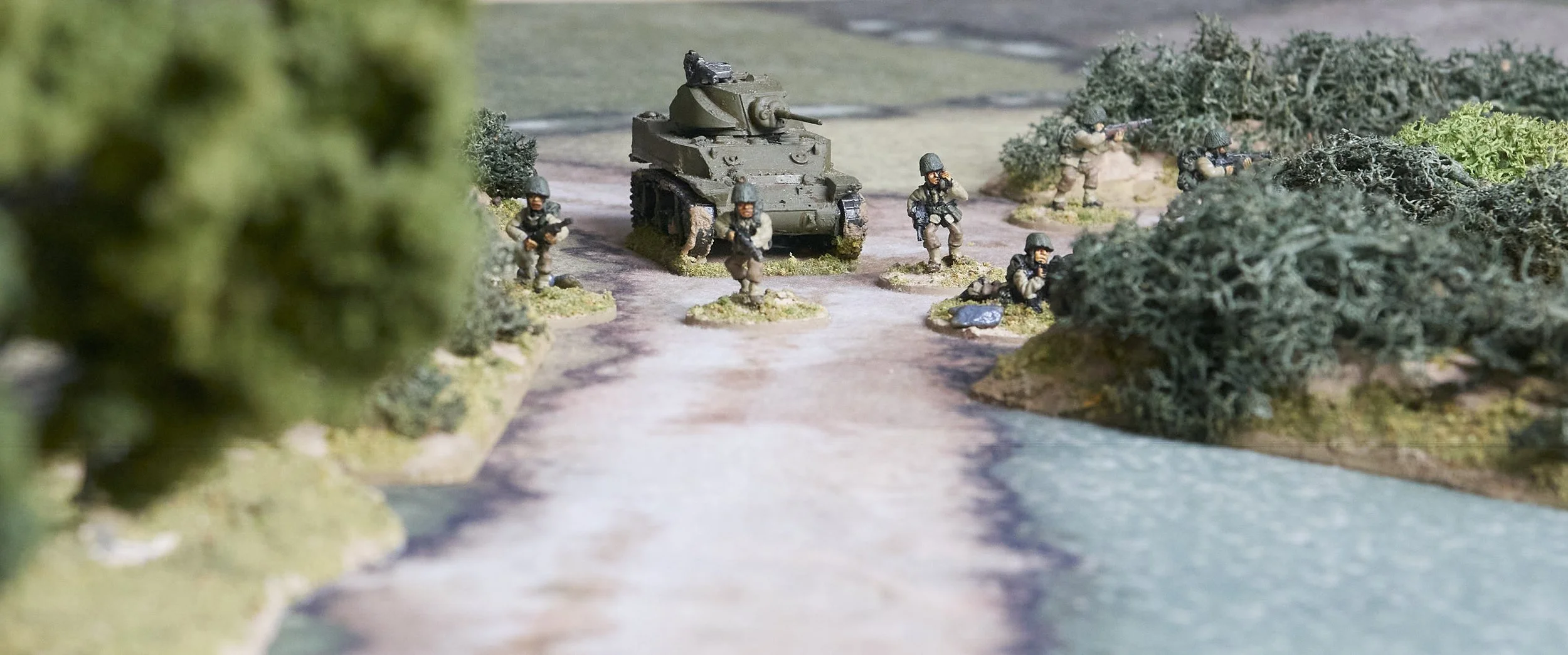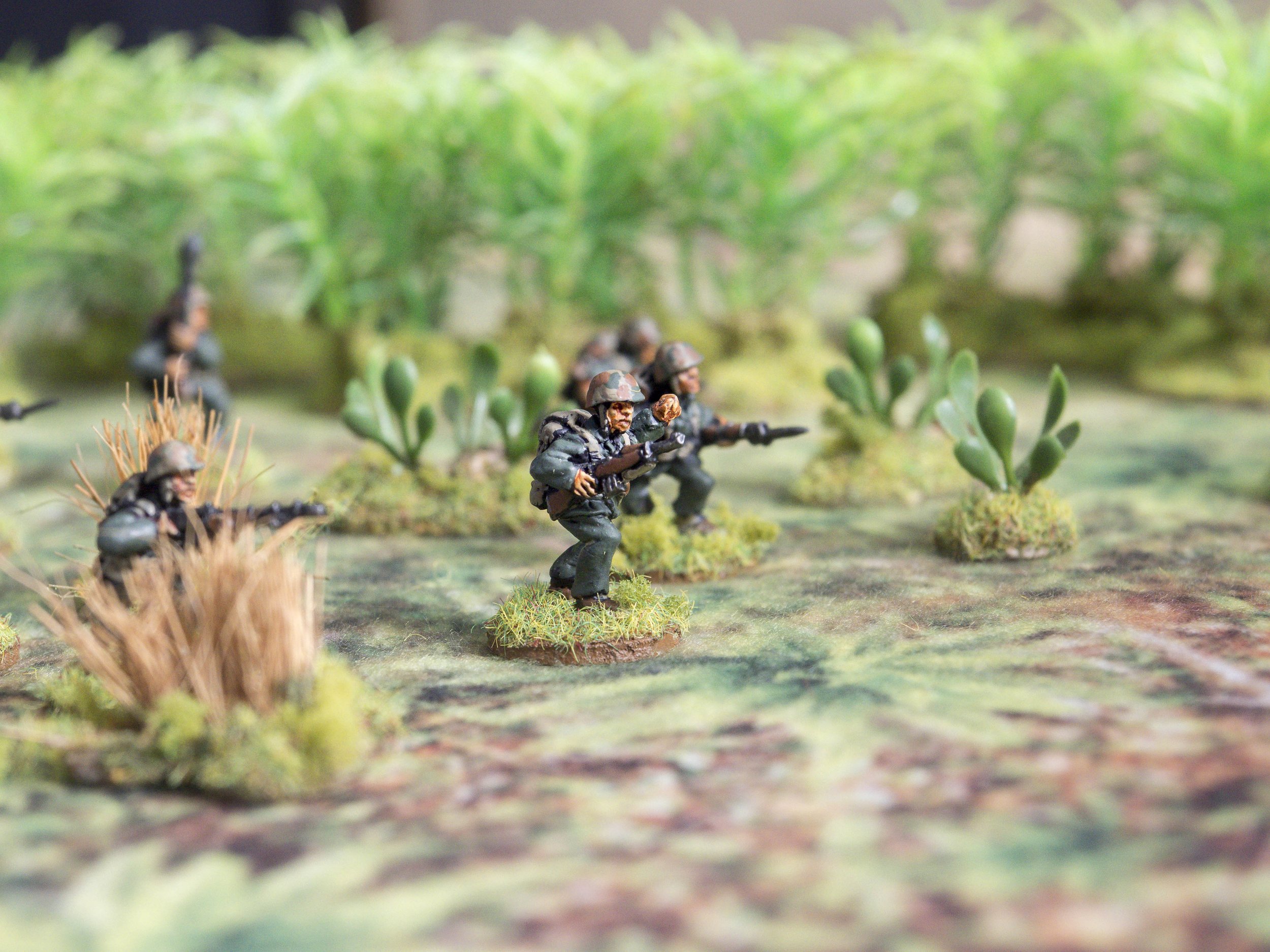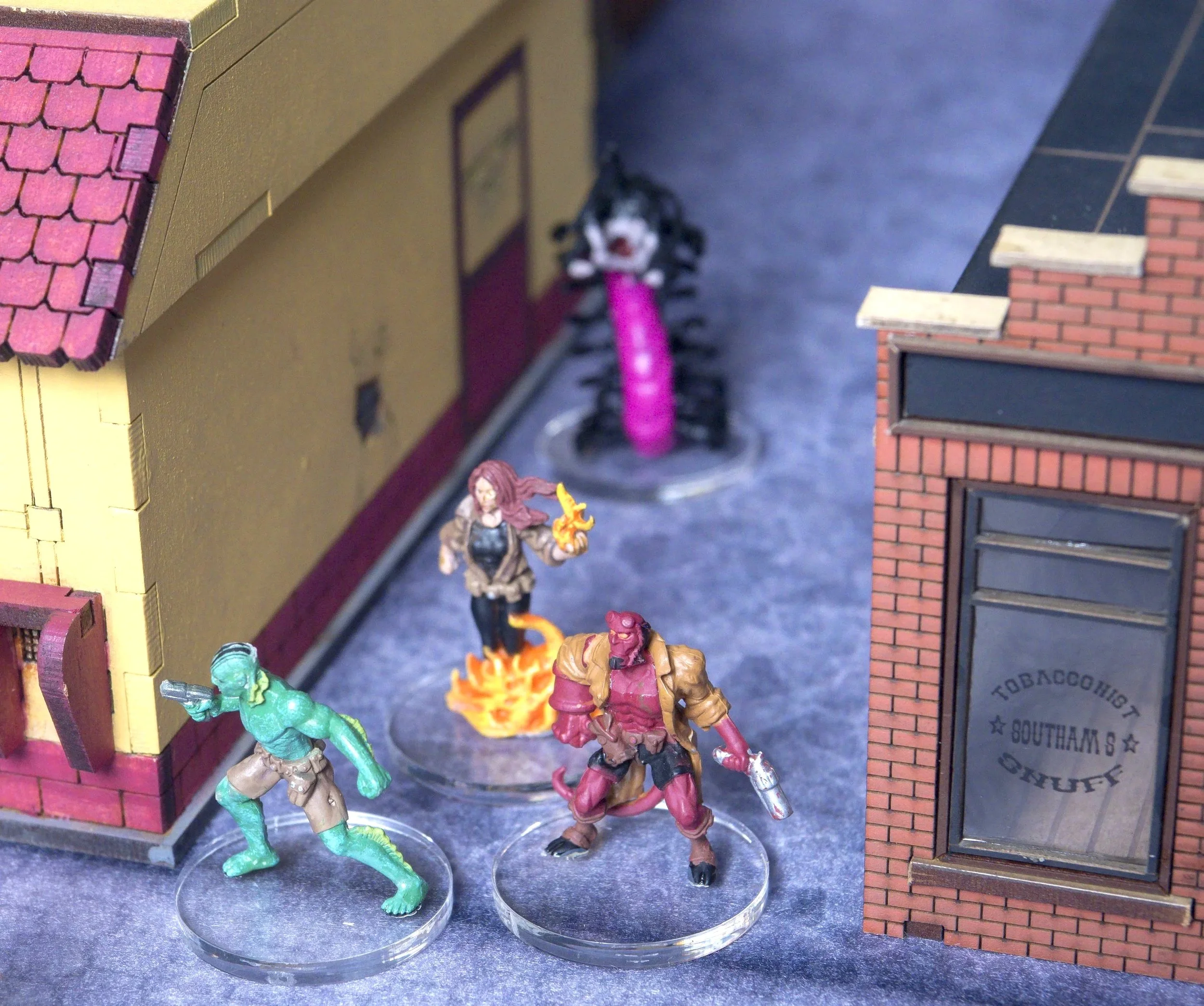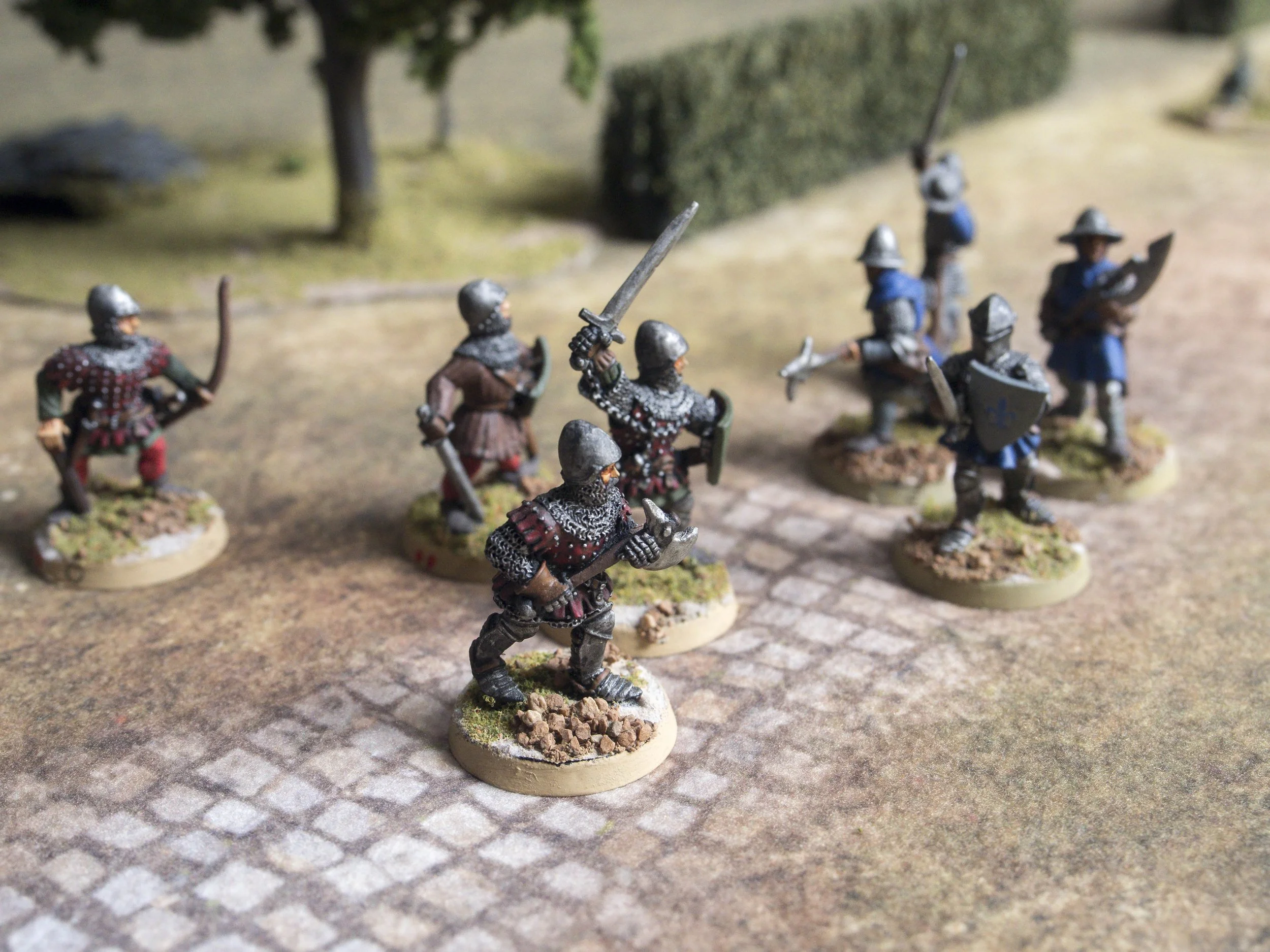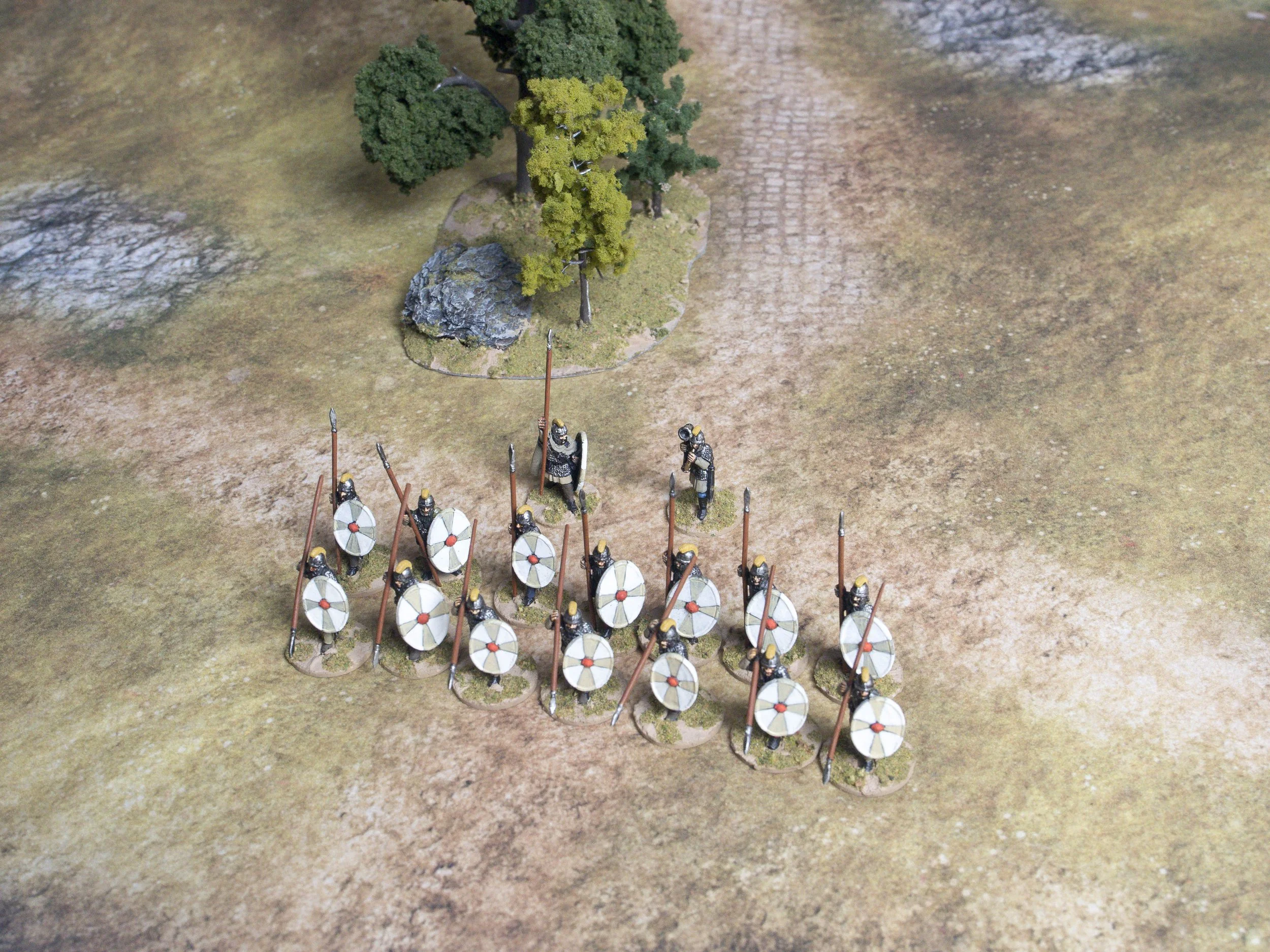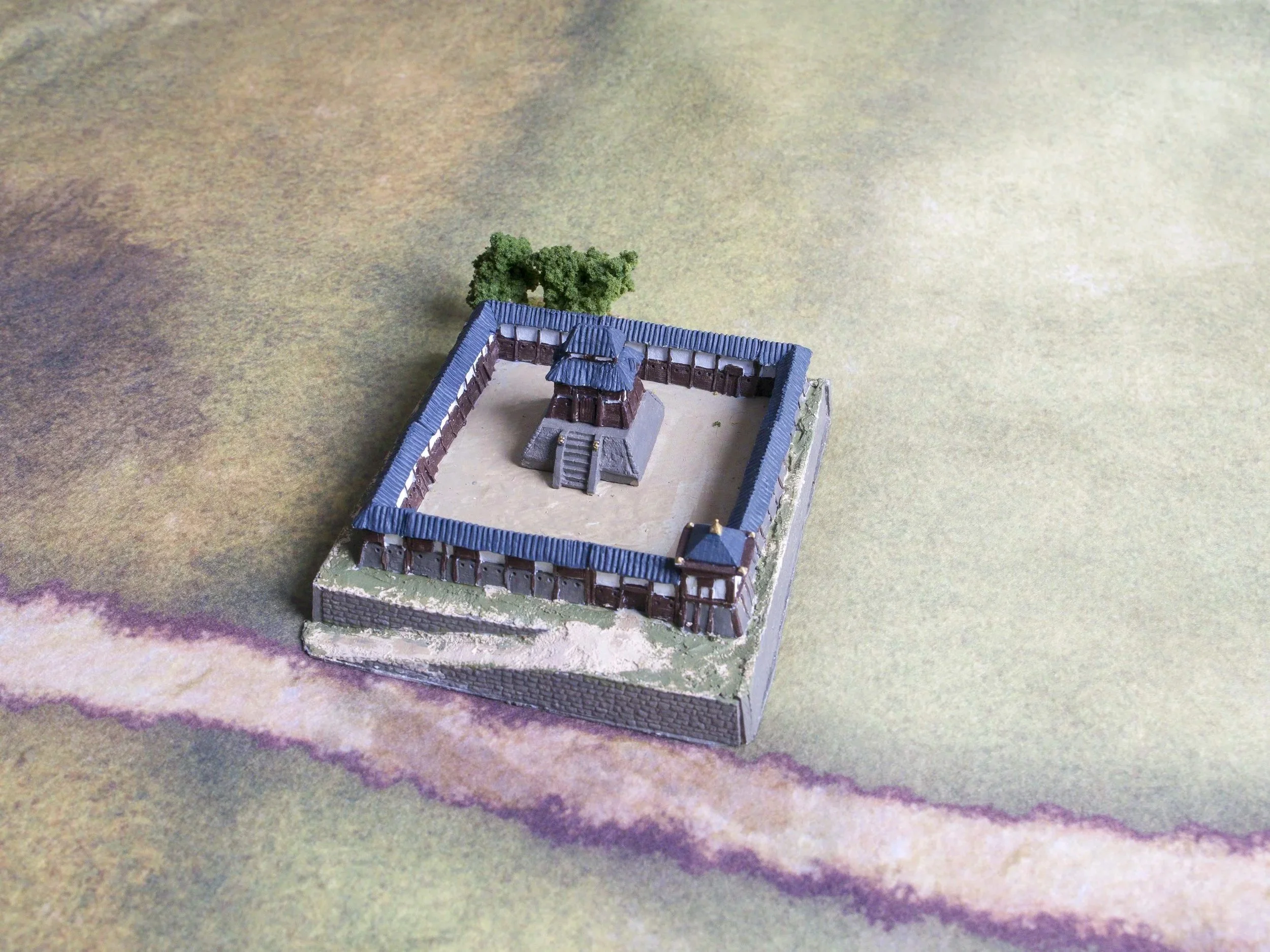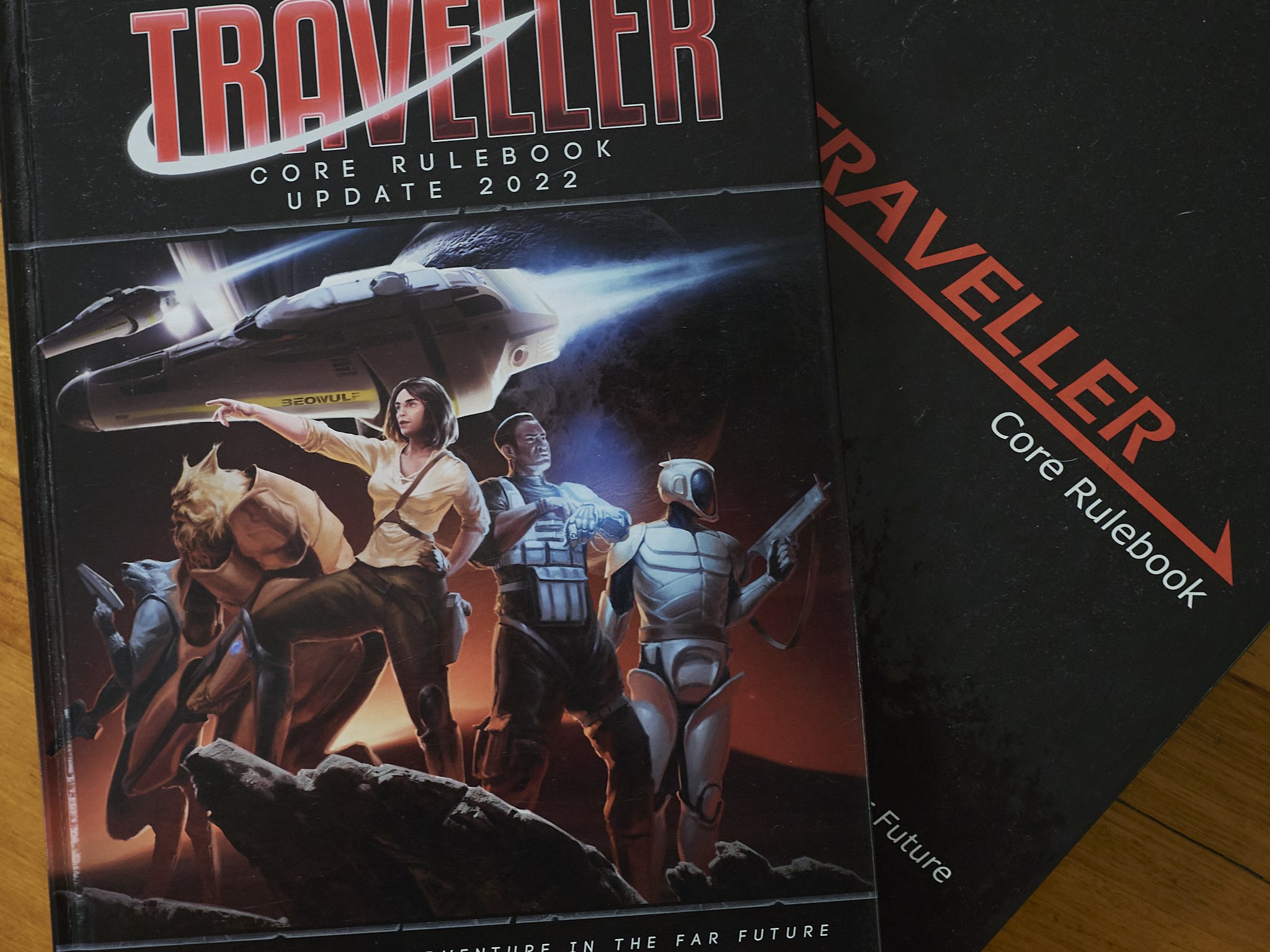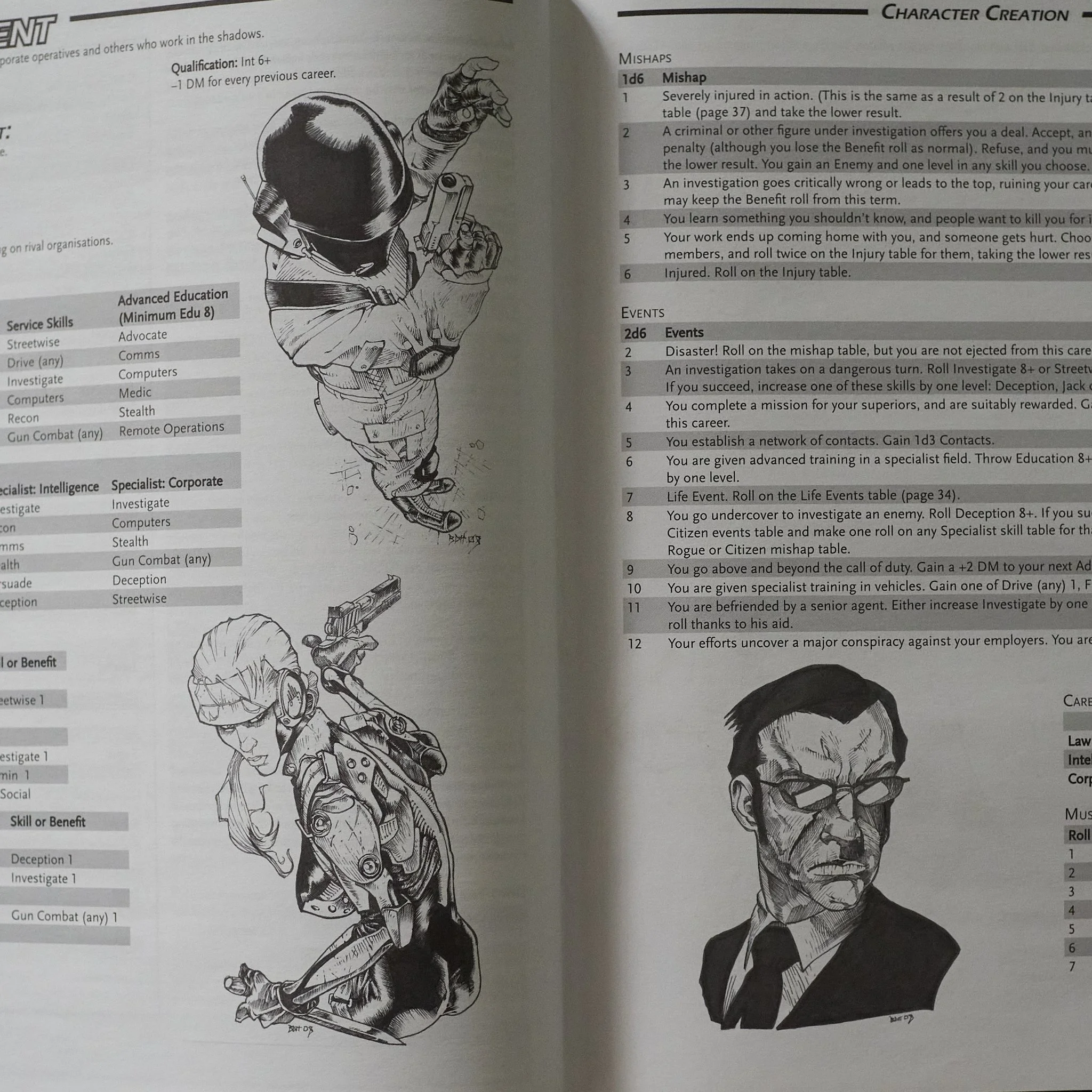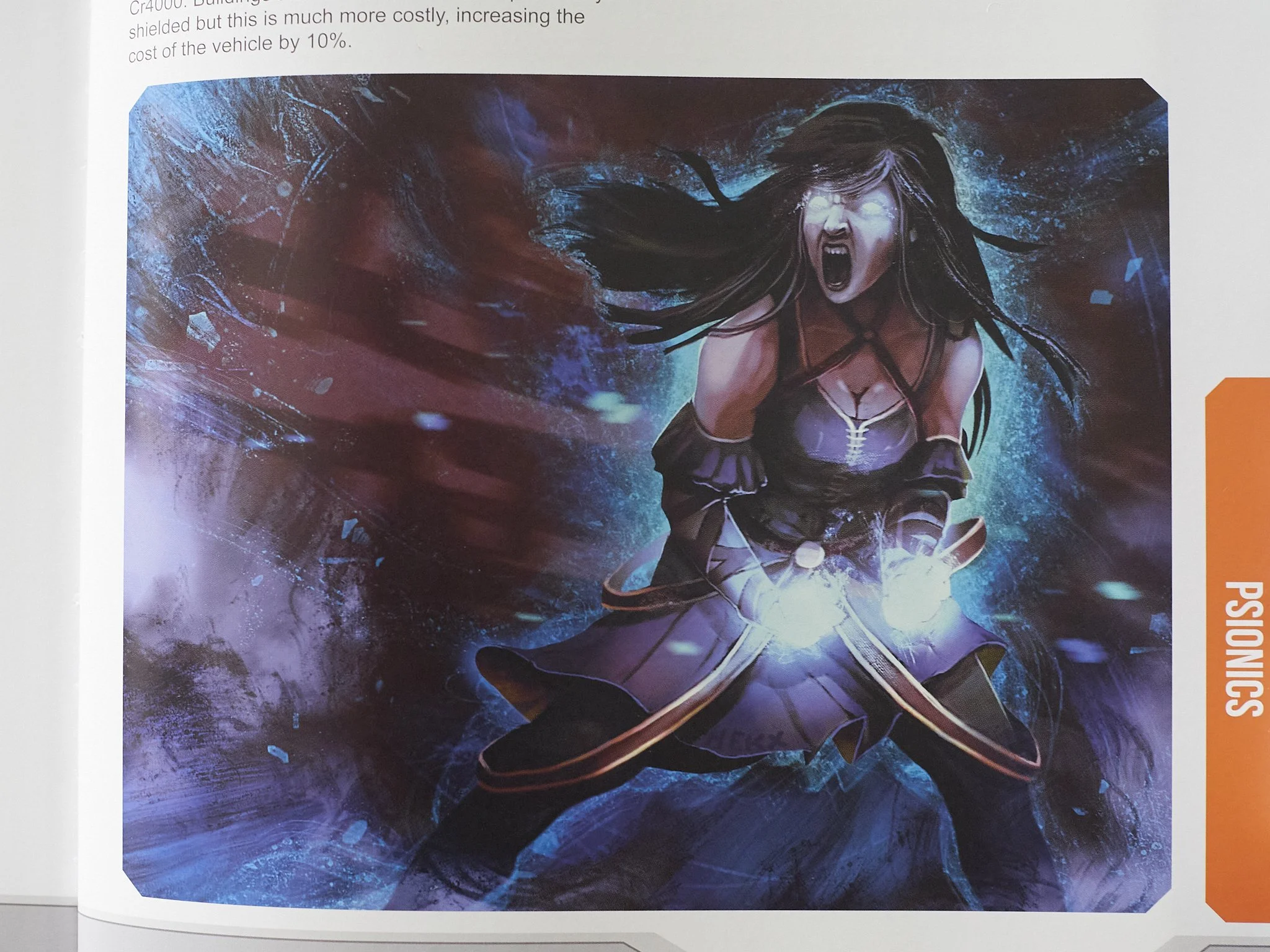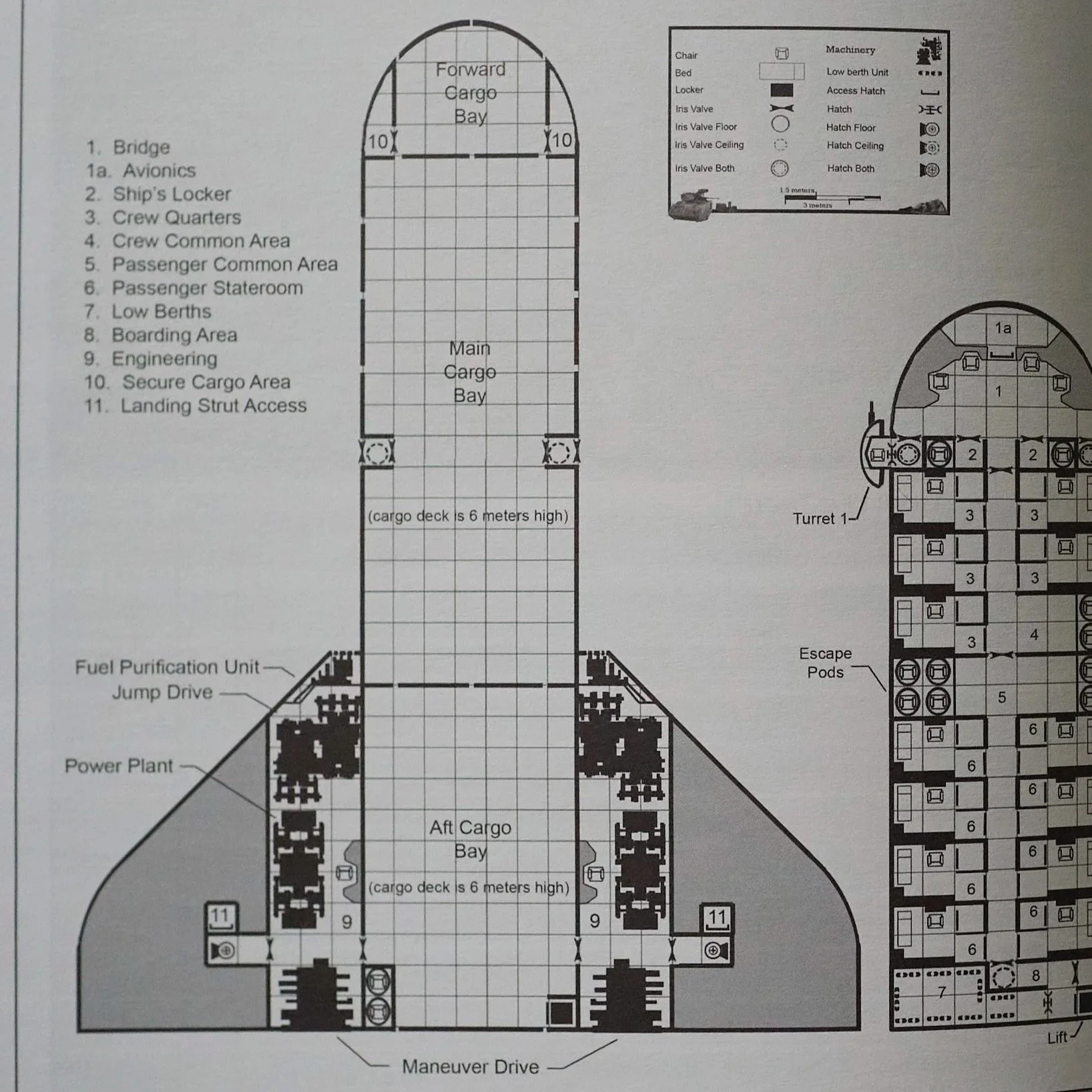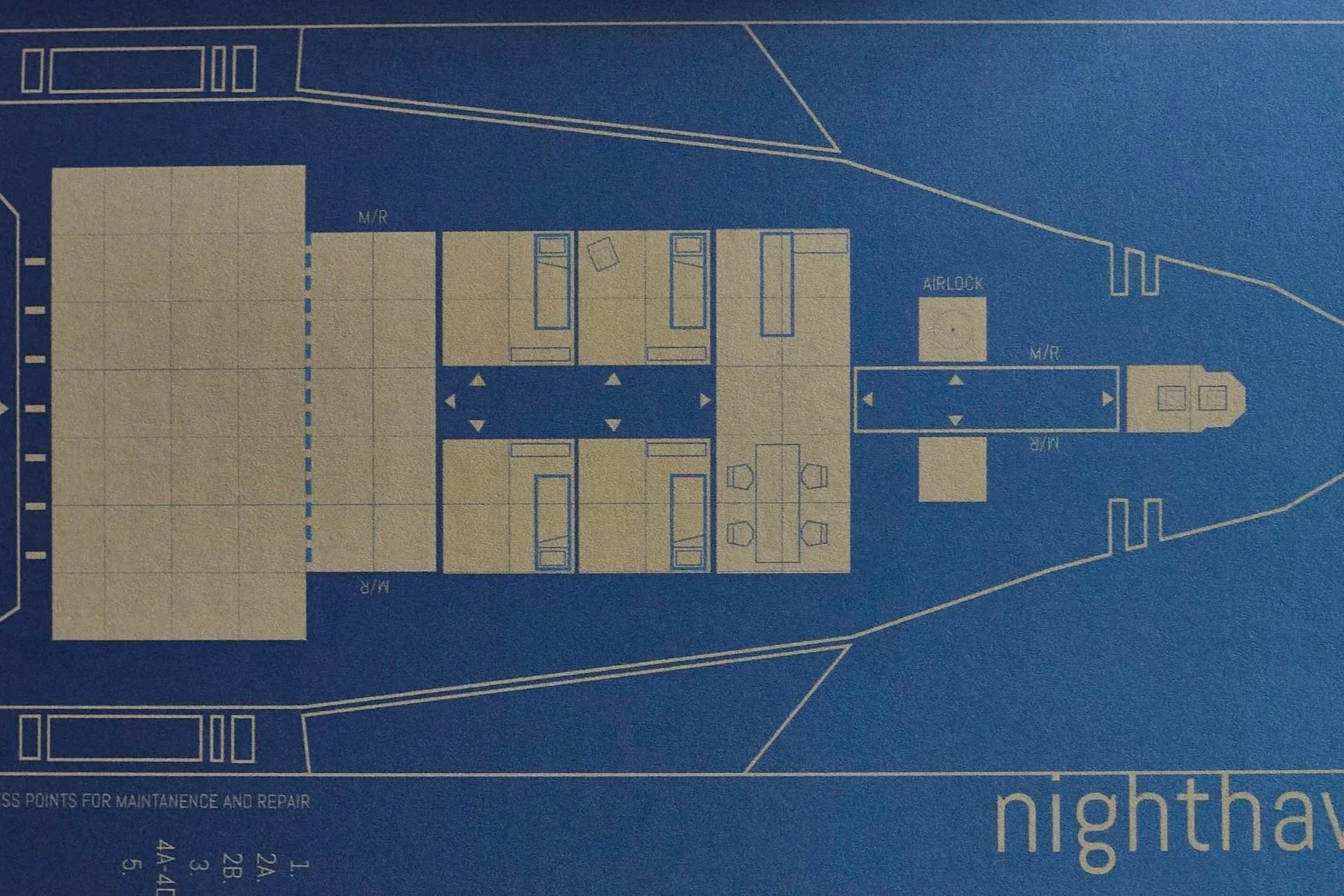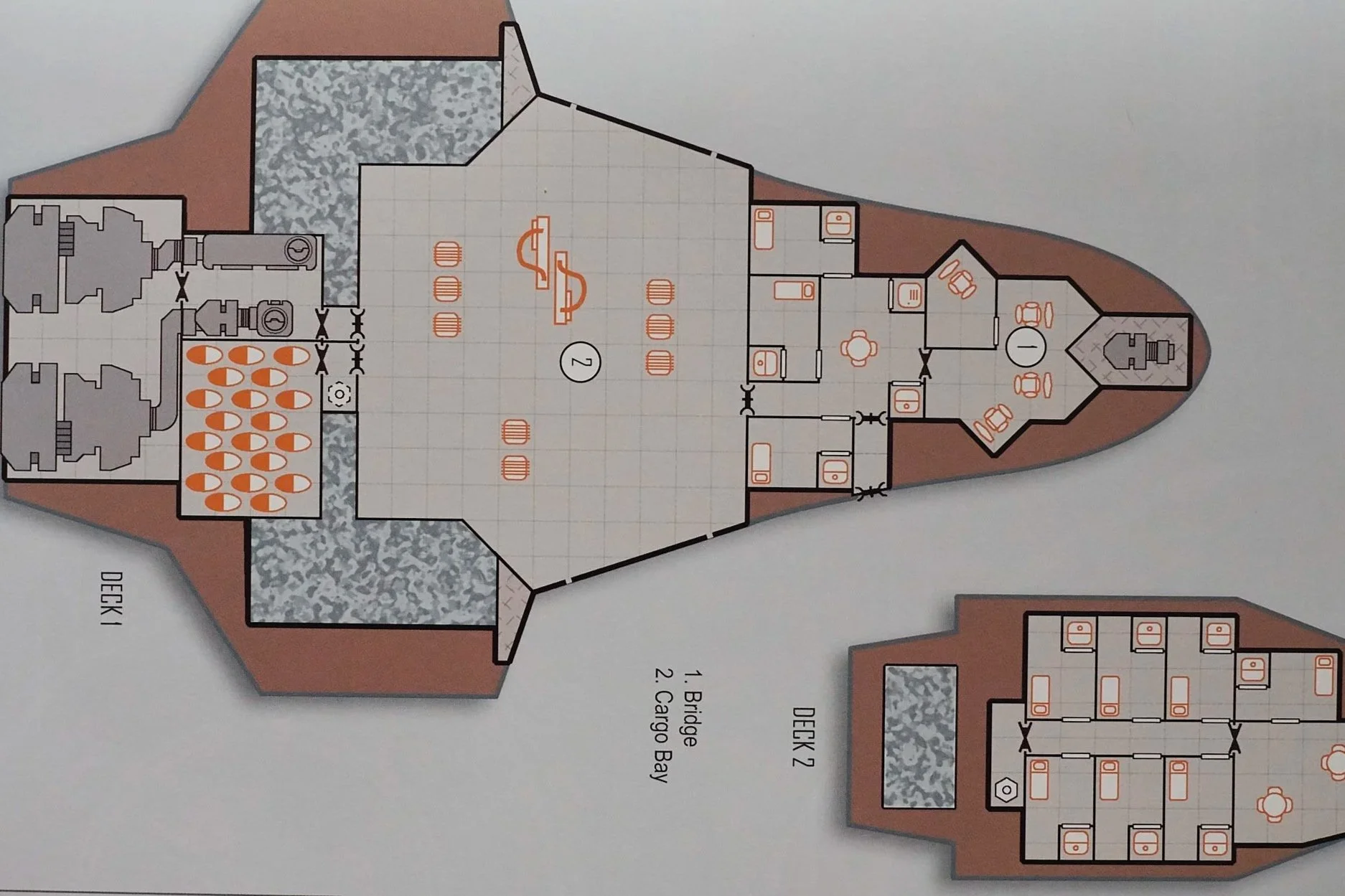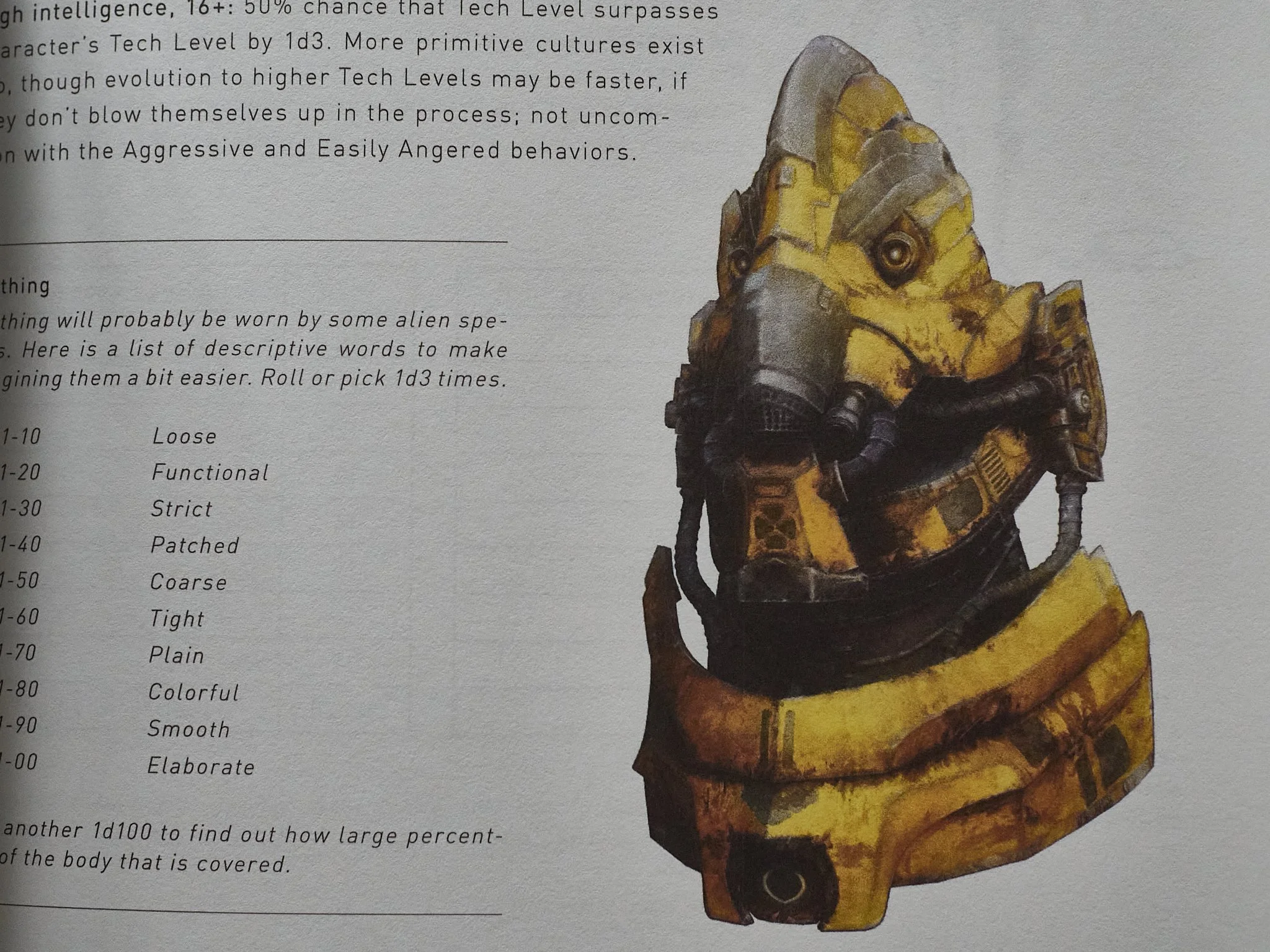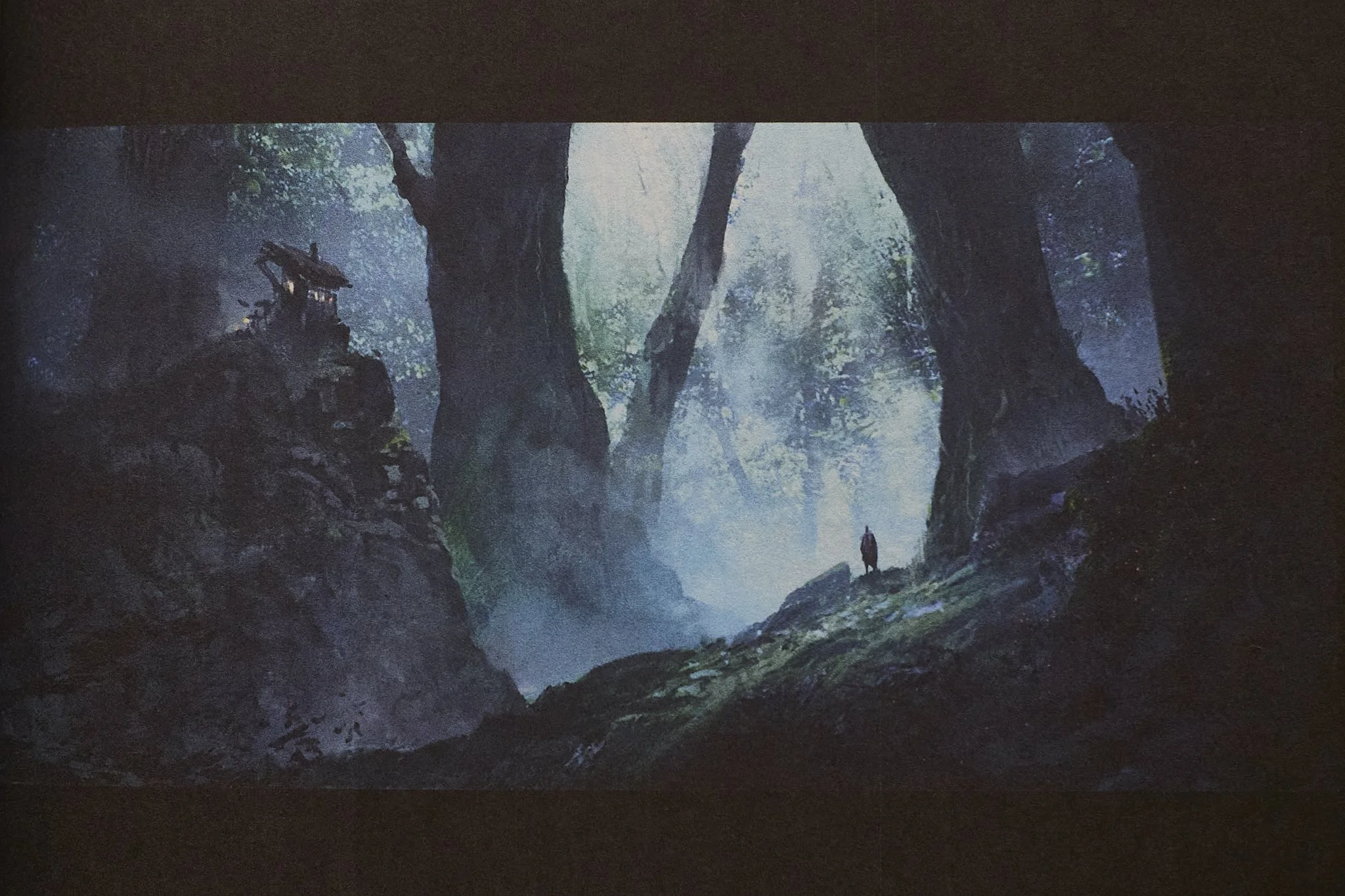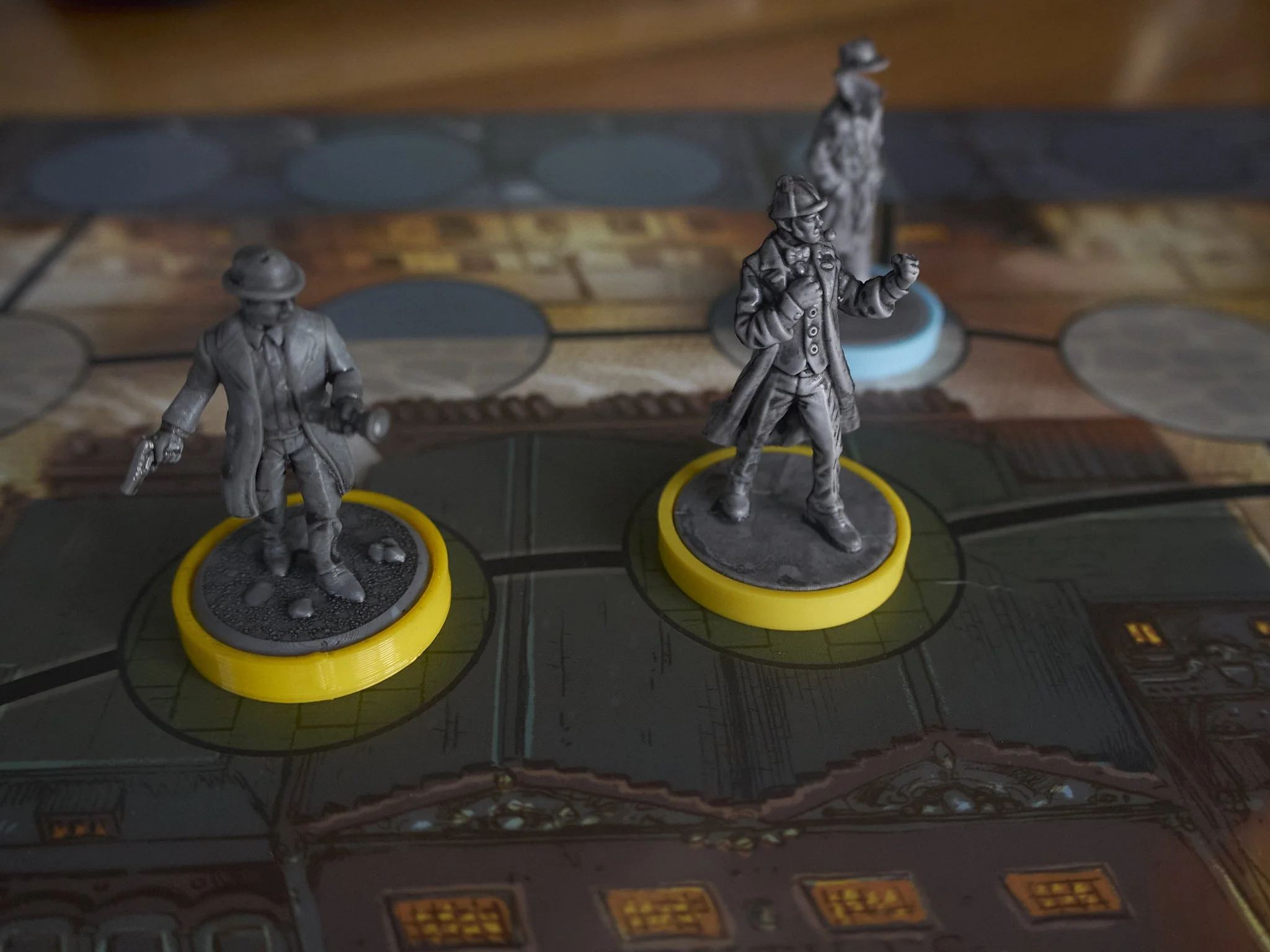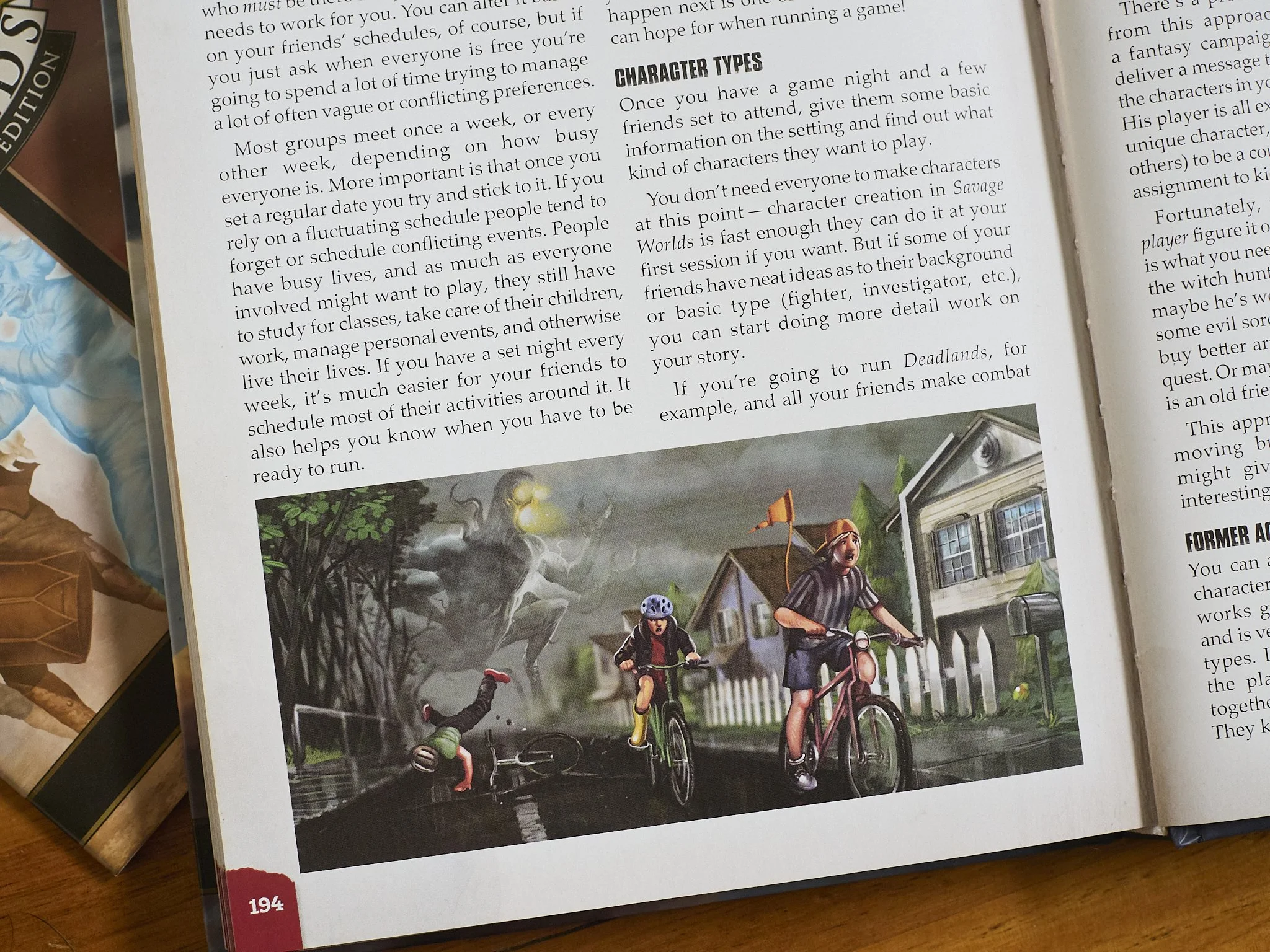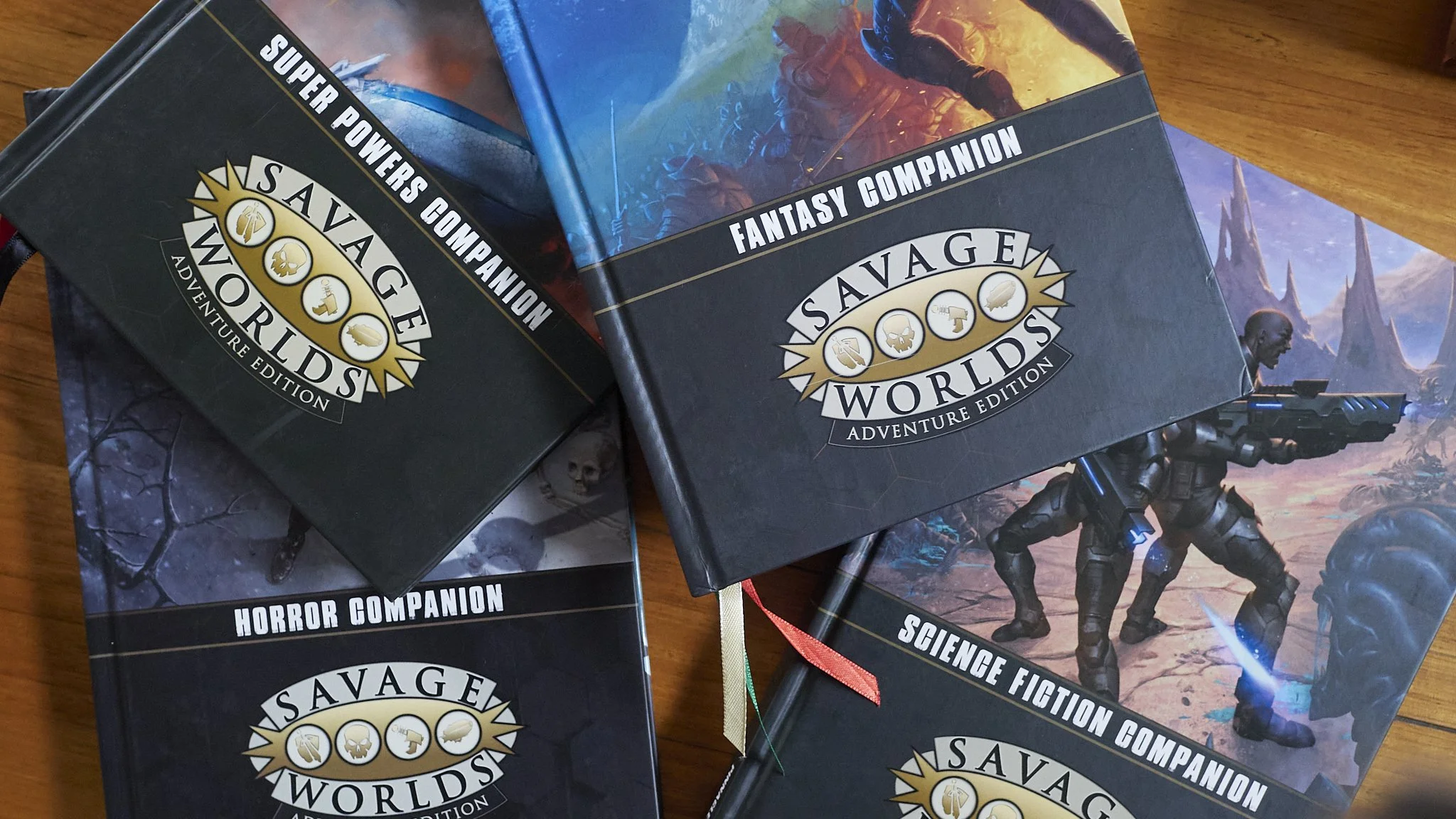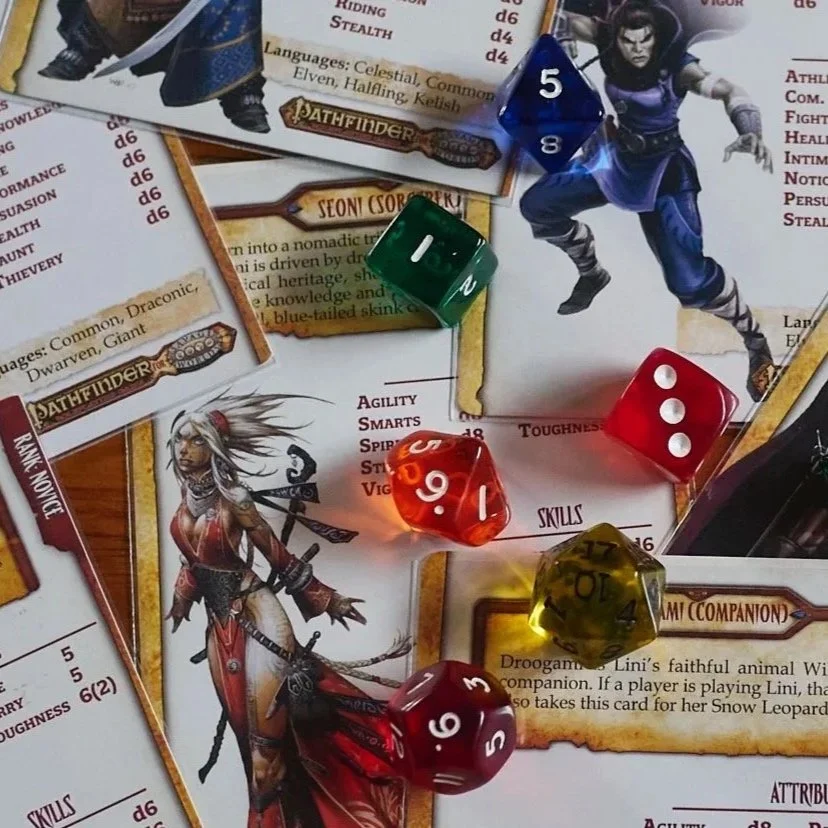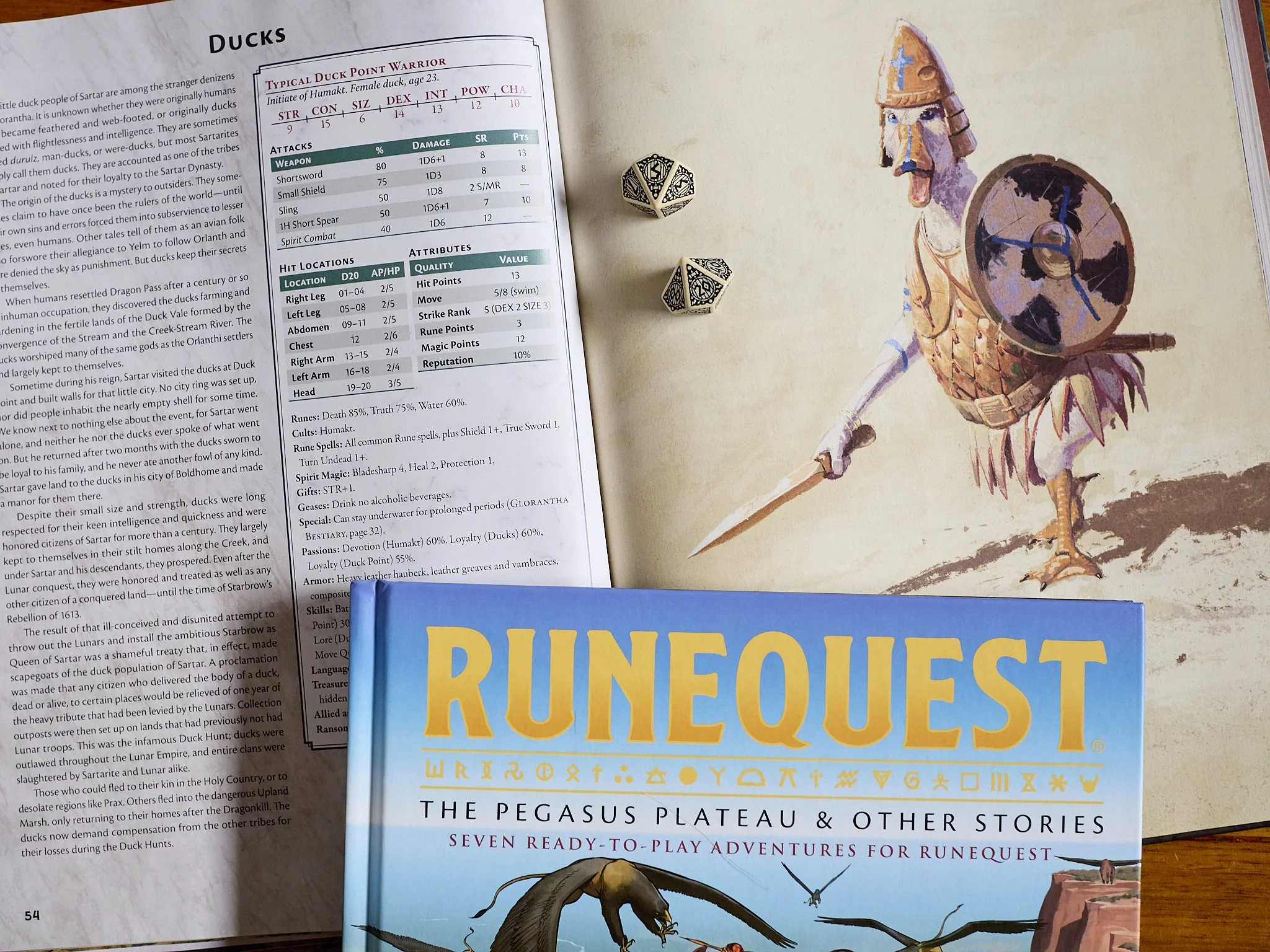After a year of saying yes to a lot of jobs that earned little, but cost a lot of time (it’s called video people, it eats time like a goose poops), I have managed to re-kindle my miniature painting bug over the holidays, with more realistic goals and standards set with a desire to get stuff on the table.
My cunning angle of attack will be to do the scenery first. This makes sense as the drive to add figures to an already great looking game space is always stronger than painting figures and then having to build the surface and sets for them to be used.
Step one is to take stock of what has already been done, which is as usual, more than I remember doing.
I have completed enough to at least get on with for now, but I have failed in the past to let these accomplishments push me on to greater things.
U.S. troops in Iraq or Afghanistan. Cigar box “Desert Town” mat and home made buildings.
“Avengers Assemble!”, some remounted Heroclix. If you are picky, there are plenty of excellent paint jobs to go with or touch up if needed and it is nice to get some pre-painted figs on the table (the big job is the rules).
It’s a bugger when you turn up to work for a modern skirmish game and the player-gods decide to throw a dinosaur at you!
18mm ECW Museum figs, one of two sets for the period, the other in 28mm Redoubt.
My cowboys and some of their substantial town.
Some Yanks in Italy. Britannia figs in classic 20mm.
The enemy view of same. The Cigar Box range of mats includes some photo realistic and these more model-like ones. All do their job well and contours are firm insulation foam hills placed under, which look great.
20mm Britannia Pacific marines. This mat is “Redwood forrest”, but doubles as rich jungle Pacific.
More Clix, Hellboy this time (look behind you guys!).
Some excellent Foundry foot Serjeants. I failed to get mounted figures, so a castle or seige skirmish only.
Next is finish the projects that are either closest to my heart and interests or my biggest passion projects.
The list is daunting, but also exciting, with priority given to;
28mm Weird West using Malifaux 1e with some other figs (Reaper mostly), probably using Savage Worlds, Haunted West, or something home brewed for rules. I went to gift these and ended up collecting more, so I must love them! A western town (have) and a Dickensian village (have).
5mm scale giant mechs using a large set of Heroclix Mech Warriors traded with a friend. This is mostly a remount job, with selective touching up. I will use 6-10mm scenery here.
15mm DBA (2.0/2.2 or 3.0 edition or Armati at a pinch). A tournament set using double sized (24 el) armies, covering Polybian Roman v Carthage v Successor (various). This is already under way, but stalled at fiddly Successor shield designs, so I will simplify and just get it done. Really like the rock-paper-scissors vibe of this game and these armies cover most of the troop types. Needs only a little clearly defined scenery on a set board size (have).
20mm WW2 Europe, Russia, Pacific and some Vietnam, which will be mounted for two game system families, with element = section bases (BattlegroupPanzer Grenadier/O Group/Crossfire/Battlefront) for operational level (battalion v battalion) games of over 100 figs each (option of Coy level with element = team) and one with figs mounted as singles for 1:1 to 1:10 scale for smaller 20-60 fig forces (Rapid Fire style). I have enough figs for both (indeed doing all my units the same is a bit redundant as I have 10-12 German units for example) and I like both styles. Again these are partly complete, just need some application applied. Big one this, a ruined village, city ruins, farms jungle etc, lots to do. I have done the jungle, which gets the Pacific and Vietnam out of the way.
28mm “Gangs of Old Kroy” rat wars game, using my huge but now out of date Warhammer Skaven armies. Rules may be a bought set, or my own. The Dickensian village above.
32mm Supers and Supernatural game using re-purposed Heroclix. This one is very much about the scenery, the rules and remounting already painted figs. I have a full city to finish (not as bad as it sounds) and about 100 figs to re-mount (also not too bad). The rules are already written in my head and in some form in a file somewhere and they work, they just need finalising. Anything can work, but the big city, a smaller, darker one, desert with various towns and the jungle are mostly ready.
28mm Arthurian using the big base Dux Bellorum system. Dark age village done.
28mm ECW using………. a system of some sort, possibly A Very Civille Action, still not sure. Middle age village and farms, partly done.
28mm moderns. I built up a comprehensive arid, jungle and urban range mostly around Eureka figs with others to fill holes. Afghan village, jungle and modern city as above.
Finish my Armada fighters and Attack Wing re-paints. Scenery mostly card stock.
Board games like Zombicide Black Plague, DCeased or Marvel, which I decided to paint for some reason. I am always surprised when I open up an old game like Pandemic Cthulhu or Batman Talisman and find the figs painted, but Zombicide was a monster in every sense with over 300 figs. Lesson learned, once started…. . It is not for nothing I have lately preferred the standee options.
There are plenty of other projects that hopefully will follow, some nearly complete;
28mm cowboys (complete town, just need rules).
28mm Dark Ages (complete), using an official Dark Age variant of Lion Rampant. Dark age village and tower.
18mm ECW using which ever mounting system the 28’s do not use, probably Principles of War or Victory Without Quarter (modified). I picked up some cheap and interesting “DnD buildings”, that turned out to be closer to 15mm than 28.
15mm huge army ancients, possibly with the Tactica or Armati rules or something of my own creation. These were originally a tactical primer of an early Roman Empire legion vs various barbarian, horse tribe, skirmisher, mixed and Civil war opponents. I later added a mid Imperial Roman vexation. Each force numbered over 300 figs (about 80-100 DBA elements) and looks impressive on the table.
15mm ACW. Big AB armies, no idea on rules yet, but plenty of options*. Some American farmsteads and bits for this and below.
15mm AWI. Similar mixed Essex, Hallmark and Washington Wars armies (some are my first minis).
18mm Napoleonic Peninsula, War of 1812 and Russia, using 1:20 scale rules of which I have a few sets. My slight interest in Napoleonics is based on smaller fights with larger units using AB figs and one of several excellent rules sets. I have a plastic Hougemont, some other buildings and mats*.
15mm late Crusader. Desert mat and some dwellings.
6mm various (basically every period I did not do in another scale) from WW2, colonial, Crimea, Samurai to Aztec and more. 6mm has its own scenery, yet to be done.
10mm Fantasy, a full set of old Warmaster figs.
Sci-Fi bits in various scales.
15-18 other bits, some a bit unlikely.
12mm Sun King a beautiful little hallmark set.
*The base of the games are a set of Cigar Box cloth mats, with some neoprene and cloth for naval, space etc.
My Gripping Beast Arthurians (all the older metal range) need re-mounting onto diorama bases for Dux Bellorum. I prefer the rules and it reduces handling damage).
A 6mm Samurai castle. It seems I covered a lot with this scale years ago that I had managed to forget. Just needs an army to surround it.
*One of the issues I have faced often is rules. Surrounded by purchased options, I ten to go with a heavily modded take or my own, which can bog things down. Part of the new offensive is the make a smart choice and get on with it. Smart means a basing style that can be used for a few.
